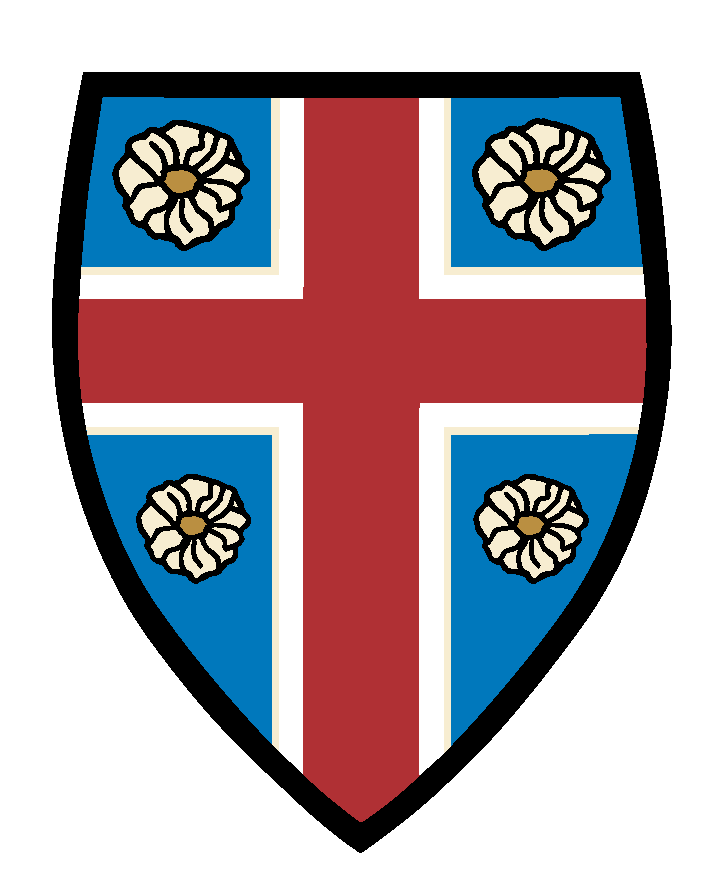December 17th, Advent Day 21
In Advent, the Episcopal Church anticipates the Nativity of Christ, “the Almighty God who came among us poor and homeless, a stranger and a child.” So we are invited to “prepare our hearts and communities for the coming of Christ,” by building “life-giving relationships” with “the neighbor, the stranger, the refugee, or the one who seems most ‘other’ to you.” By committing to such relationships, we are becoming Beloved Community, a term for a collective journey to overcome disparities and divisions—of race, wealth, and influence—through reconciliation, justice, and healing. Within our own Beloved Community, members of Emmanuel and of churches and organizations across the Sandhills have initiated and expanded life-giving relationships across divisions. Nourished by communal studies and active collaboration, these relationships continue to be transformative for participants and for our community.
Two trajectories of life-giving relationships, study and action, converged in two online meetings that took place on September 17, 2020. At noon came the opening session of a syllabus-based, Ecumenical Community Book Study of Just Mercy, the human rights lawyer Bryan Stevenson’s account of his pursuit of equal justice for minorities and the poor. For ten weeks, clergy from black and white churches in the Sandhills would lead forty participants from varied backgrounds in guided small-group and general discussions. Each of us deepened our understanding of bias, injustice, and mercy as we experienced principles of reconciliation: get proximate, change the narrative, get uncomfortable, don’t lose hope. We also forged deep personal bonds and became the Sandhills Beloved Community, which we have sustained through prayers, public activities, and more online book studies--about racial differences, Biblical justice, and our fragile democracy.
Only a few hours after the Just Mercy study convened, so did an ecumenical Communications Team with a purpose: wide-ranging promotion of a visionary project by the Southern Pines Land & Housing Trust and leaders of West Southern Pines. Two months before, the Trust had submitted to the Board of Education a purchase bid for the unoccupied Southern Pines Primary School campus. The Trust presented a detailed site plan to redevelop the historic school property and its buildings as a center for black history, cultural arts, and entrepreneurship that would revitalize its established but underserved community. The project had in place funds and pledges, support from county civic, business, arts, and religious leaders, grant applications, and a Development Team of professionals. But the plan triggered opposition and misinformation from interest groups. On the Communications Team, volunteers from Brownson and Emmanuel with media and fundraising expertise worked with West Southern Pines leaders to promote the school project and raise funds--in newspaper columns, churches, communities, public events, media releases and a prayer vigil. For another year, new school board members, new appraisals, media misinformation, and legal maneuvers repeatedly blocked approval. At school board meetings we prayed together, as passionate appeals from West Southern Pines residents and logical arguments from residents and their supporters met with both compassion and condescension from two board members.
In December 2021, after votes by school board members and the Town of Southern Pines, the Southern Pines Land & Housing Trust took over ownership of the primary school property in West Southern Pines. Work continues on transforming the site into the West Southern Pines Center for African American History, Cultural Arts, & Business. Those of us who attended the faith community book studies and who worked together on the school purchase project are now treated as family when we meet at the West Southern Pines Center for cleanup, fundraisers, and festivals. As our Beloved Community grows, look again! Join us! Learn more from Bob Howell or Monika Brown.

